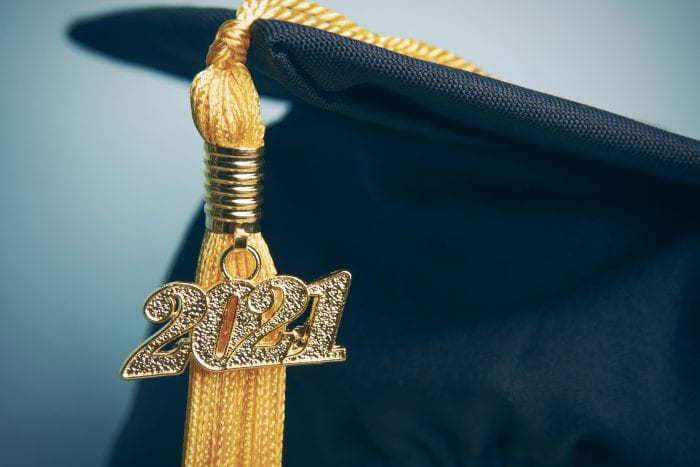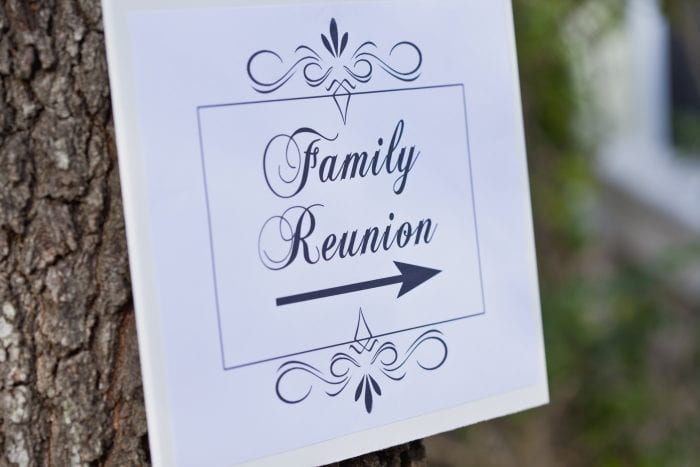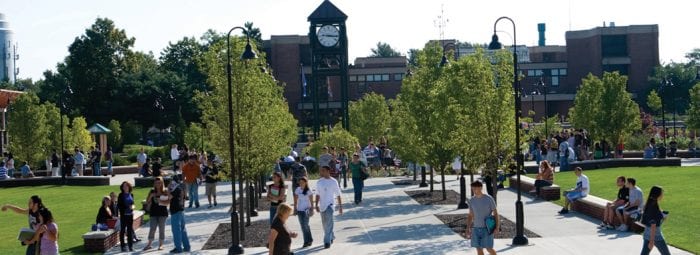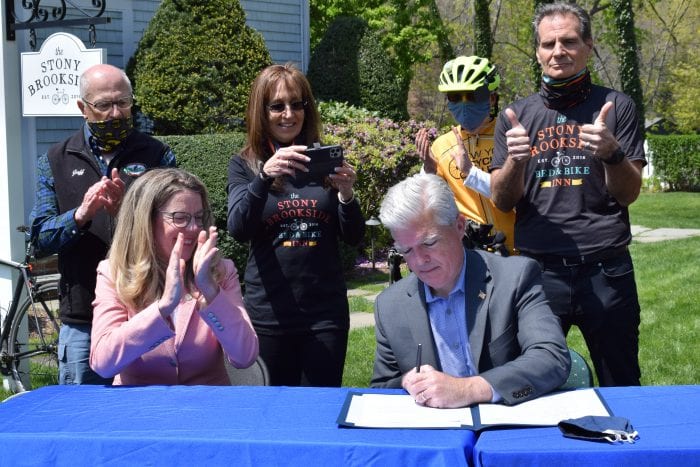By Daniel Dunaief

No one asked me to give a graduation speech. I haven’t done anything to merit standing in front of a group of people who have poured their blood, sweat and tears into their education and who are eager for a memorable, but short send-off. If they’re like me, some of them are probably trying not to sweat on or wrinkle their diploma while they wonder who came up with the idea of turning a piece of cardboard into a hat.
Anyway, I can’t help imagining what I might say to graduates who have ended one phase of their lives and are preparing for another.
I’d start by urging people not to get angry. Adults have mastered the fine art of being angry, yelling at each other, expressing outrage at the way other’s drive, think, live and date. We can and should learn to be as patient with others as we would like them to be with us. You know those student driver bumper stickers? Maybe we should treat each other as if we’re students of life. Let’s assume, for just a moment, that the worst of what you think someone else might have said to offend you or to cause you to gnash your teeth and pull at your hair isn’t actually what they intended.
After all, during the course of your education, you likely wrote or said something in class that your teacher might have misinterpreted or that a fellow student might have taken the wrong way. Perhaps an effective metaphor here might be to imagine that you are laying out the road ahead of you. Wouldn’t it be better to create streets with turnoffs and that allowed traffic in two ways, instead of building an express lane to the world of outrage, anger and disappointment?
I would also urge you, the current graduates and the keys to an effective future, to listen to ideas and opinions that don’t mirror your own. It’s easy to live in an echo chamber, where people say what you want to hear or what you already think, but you don’t learn and grow much listening to the same ideas and expressions endlessly.
Think about your audience when you share an insight, an idea or even a joke. Your boss is probably not the best person for bawdy humor or a racy compliment, no matter how cool he or she seems. While some story might be incredibly funny to people who were there with you at the time, were inebriated, or have concluded that you couldn’t possibly offend them no matter what you said, the same preconditions don’t exist for your boss or a potential customer. Humor is like flavors of food. What constitutes funny varies greatly, with some people nearly falling over in hysterics watching someone stumble on a sidewalk and others failing to see the amusement from physical humor.
Now, this one might be the toughest to hear, but, just because your parent said it or did it doesn’t mean it’s wrong. As graduates, you have likely decided to turn your parents’ words into the sounds of teachers from the Charlie Brown animated series. While that may help you create enough distance to leave the nest, you should remember that those flawed humans who have loved and supported you from your first steps until this one are on your side and are trying to help.
Finally, I’d like to suggest that what you do is almost always much more important than what you say. It’s easy to throw words and labels in the air — “I’m an environmentalist” or “I love animals” — but it’s much more important for you to turn those words and ideas into actions. Your best intentions are great, but your best actions are that much more valuable.

















